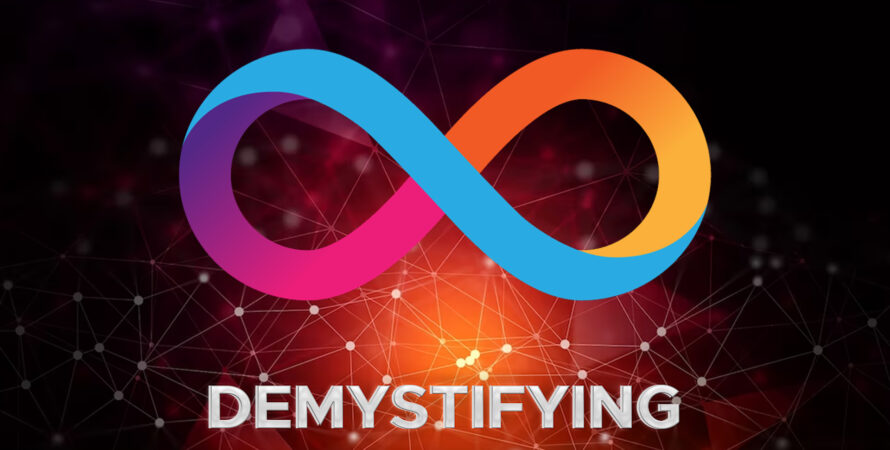- The Internet Computer Protocol (ICP) is a blockchain-based protocol that enhances the possibilities of the conventional Internet.
- It seeks to create a cohesive environment for developing and deploying software on a worldwide level.
- ICP aims to offer a unified platform that enables more secure and scalable applications in the blockchain network, allowing developers to build and run software without relying on centralized servers.
In simpler terms, the Internet computer can be understood as a supercharged version of the regular Internet that is spread out across the world. ICP, or Internet Computer Protocol, is the set of rules on which this blockchain network works. Its benefits include making the network secure, efficient, and connected by enabling participants to build websites or apps without any data centralization.
Key Concepts Of ICP
ICP’s architecture is built on key concepts that drive its innovation, which are:
- Canisters
- Canisters act as secure software units, enhancing decentralizing computation and providing a more secure and efficient platform for building and running applications.
- They encapsulate both application code and state, allowing for efficient and secure computation.
- By isolating apps, canisters enable apps to run independently, enhancing scalability and security.
- Cycles
- Cycles serve as a measurement of computation resources within the ICP network.
- They represent the effort required to perform computations and transactions.
- ICP employs utility tokens to compensate for computation and storage resources used on the network.
- These tokens have practical value in covering the costs associated with running applications and interacting with the decentralized system, ensuring a fair and sustainable model for participants and developers alike.
Decentralized Identity System
- ICP’s decentralized identity system empowers users with increased control over their digital identity and personal data.
- It allows individuals to manage their online presence without relying on centralized authorities.
- Users can selectively share information while preserving privacy.
- By leveraging blockchain technology, this system offers enhanced security, reduces the risk of data breaches, and ensures that users have a stronger say in how their personal information is accessed and used across the network.
Application And Use Cases
- In finance, it could streamline transactions and create more efficient payment systems.
- Gaming could benefit from secure in-game purchases and ownership verification.
- Decentralized applications could flourish, offering improved privacy and resilience.
- Supply chain management might see enhanced transparency.
ICP’s capabilities could revolutionize finance, gaming, decentralized apps, and supply chains, among other sectors, by leveraging its secure and scalable architecture.
Challenges Faced By ICP
- Regulatory hurdles
- Scalability issues
- Security concerns
- Network governance
As ICP evolves, advancements in security, usability, and integration could drive its integration into various industries, paving the way for a more decentralized and interconnected digital landscape.
Conclusion
- ICP’s emergence marks a groundbreaking technology for transforming the internet.
- ICP aims to eliminate the need for intermediaries and provide a more open and scalable environment.
- By harnessing blockchain technology, it has the power to provide a decentralized and secure network.
- As ICP continues to develop, it holds the potential to reshape the way we interact, create, and transact online, fostering a more empowered and interconnected global community.



